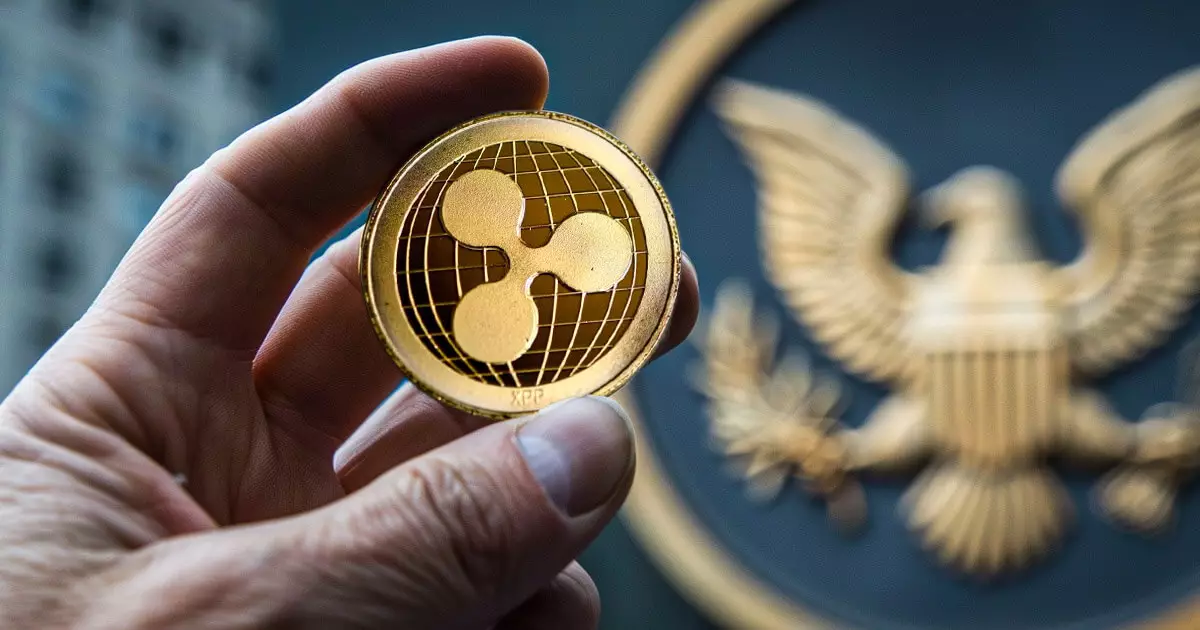The legal entanglement between Ripple Labs and the U.S. Securities and Exchange Commission (SEC) represents a significant chapter in the ongoing discourse surrounding cryptocurrency regulation. The latest development came on October 10, 2023, when Ripple Labs submitted a notice of cross-appeal to the United States Court of Appeals for the Second Circuit. This crucial step follows the SEC’s own appeal earlier in the month, which seeks to overturn a court ruling deemed favorable to Ripple regarding its XRP token sales. This article dives deep into the implications of these appeals and the broader context surrounding this legal battle.
Ripple’s troubles with the SEC began in December 2020 when the commission filed a lawsuit against the company, accusing it of conducting an unregistered securities offering amounting to $1.3 billion through its XRP token. The regulatory body claimed that Ripple’s actions fetched the company profits akin to securities transactions, thereby subjecting them to stringent securities regulations. The initial lawsuit instigated a whirlwind of discourse within the crypto industry, raising questions about the overarching framework of cryptocurrency regulation in the United States.
In July 2023, the US District Court for the Southern District of New York, under Judge Analisa Torres, delivered a partial victory to Ripple. The court concluded that while the firm’s institutional sales of XRP did indeed violate securities laws, programmatic sales—those transactions made via exchanges to retail investors—were ruled not to be securities offerings. As a result, the SEC’s demands for a staggering $2 billion fine were notably curtailed. Instead, Ripple faced a civil penalty of $125 million—an amount that, although significantly lower than the SEC’s insistence, still echoed the importance of compliance in a fluctuating legal landscape.
In light of the SEC’s appeal to contest the court’s favorable ruling for Ripple, the cross-appeal filed by the firm serves not merely as a defensive move but as a strategic maneuver to solidify its ground against the aggressive regulations that the SEC has sought to impose. Ripple’s Chief Legal Officer, Stuart Alderoty, articulated that this cross-appeal is intended to ensure that “nothing is left on the table,” indicating a clear desire to secure a comprehensive legal victory.
The significance of this cross-appeal extends beyond the immediate case—it symbolizes Ripple’s resolve to challenge regulatory overreach in the cryptocurrency space. Alderoty’s declarations suggest that the SEC will likely argue that XRP sales on exchanges and distributions to stakeholders like employees are subject to securities law, a position Ripple clearly aims to combat with its cross-appeal.
Ripple’s executives have not shied away from making their views public, often voiced through social media platforms. CEO Brad Garlinghouse emphasized that the SEC’s actions seem to be rooted in “creating havoc” rather than seeking to provide clear guidelines for cryptocurrency businesses in the U.S. His remarks suggest a growing frustration among industry leaders regarding the SEC’s regulatory stance and its implications for innovation and growth within the crypto ecosystem.
Garlinghouse and Alderoty’s sentiments collectively reflect a broader ethos of resilience among crypto industry players against regulatory challenges, reinforcing their commitment to combat what they term as the SEC’s “regulation-by-enforcement” strategy.
As both Ripple’s and the SEC’s appeals converge into a single case, the legal proceedings are set to extend further, prolonging uncertainty in the crypto space. The outcome of these legal battles will not only shape the future of Ripple and its operations but will also hold broader implications for how cryptocurrencies are regulated in the United States.
With the stakes so high, both parties are poised to present robust arguments in court. A ruling favoring Ripple could set a precedent that affirms the legitimacy of certain crypto operations, while a decision favoring the SEC may embolden the regulatory body to intensify its scrutiny over cryptocurrencies. The implications of this case are not confined to Ripple alone; they resonate throughout the crypto industry and could determine the landscape of cryptocurrency regulation for years to come.
The legal saga between Ripple and the SEC has transitioned from a dispute over individual practices to a much broader conversation about regulation in a nascent industry. As both sides prepare for their next legal showdown, the broader implications for the future of cryptocurrency regulation hang in the balance, promising a captivating continuation of this unprecedented legal drama.

